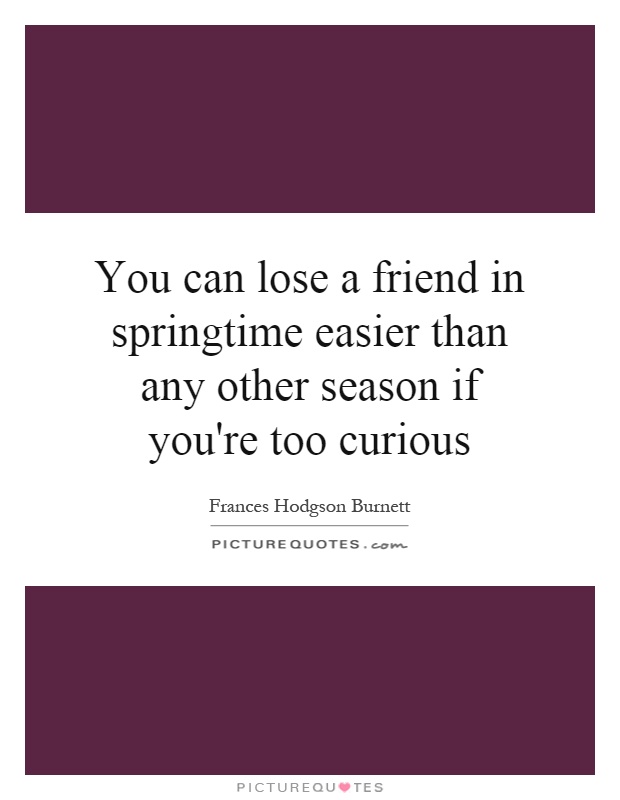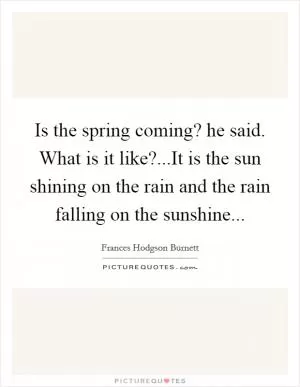You can lose a friend in springtime easier than any other season if you're too curious

You can lose a friend in springtime easier than any other season if you're too curious
Frances Hodgson Burnett, the beloved author of classic children's novels such as "The Secret Garden" and "A Little Princess," had a keen understanding of the complexities of human relationships. In her works, she often explored themes of friendship, loyalty, and the importance of trust. One of the most poignant lessons she imparted was the idea that friendships can be fragile and easily broken, especially during times of change and transition.In the quote, "You can lose a friend in springtime easier than any other season if you're too curious," Burnett captures the essence of how curiosity and nosiness can lead to misunderstandings and ultimately, the dissolution of a friendship. Springtime, with its sense of renewal and new beginnings, can be a time of heightened emotions and vulnerability. People may be more sensitive to perceived slights or betrayals, and small misunderstandings can quickly escalate into larger conflicts.
Curiosity, while often seen as a positive trait, can also be a double-edged sword when it comes to friendships. Asking too many questions, prying into someone's personal life, or spreading gossip can all be detrimental to the trust and intimacy that are the foundation of a strong friendship. In the context of Burnett's novels, characters who are too curious often find themselves isolated and alone, their relationships strained or broken beyond repair.












 Friendship Quotes
Friendship Quotes Love Quotes
Love Quotes Life Quotes
Life Quotes Funny Quotes
Funny Quotes Motivational Quotes
Motivational Quotes Inspirational Quotes
Inspirational Quotes